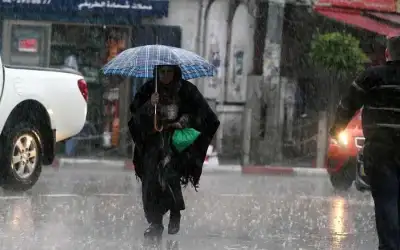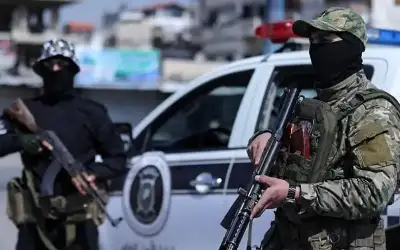Ill-informed analyses of KSA
نيسان ـ نشر في 2016-02-25 الساعة 11:15
.
SABRIA S. JAWHAR
arabnews
Since Egypt’s failed revolution in 2011 and the subsequent overthrow of governments in North Africa and the Middle East there have been predictions about Saudi Arabia facing unrest. Yet five years later the Kingdom remains as strong as ever.
Plummeting oil prices have prompted the Saudi government to take necessary steps, speed up its options with austerity measures that include privatizing health-care services and education, taking Saudi Aramco public and cutting subsidies on fuel. Above all, Saudi Arabia’s dependency on oil revenue must be curbed with other revenue generating industries, including making better use of its untapped uranium deposits.
There is little doubt that it will emerge from this economic crisis stronger and better equipped to wean itself off oil. Saudi Arabia has been through this before in the 1980s and took the long view by refusing to reduce oil production, even when oil was $7 per barrel. The result was the country pulled out of the economic doldrums and became stronger as a result. We should also remember that Saudi Arabia had developed a strategy to reduce its reliance on oil as a primary source of revenue long before the current fiscal slowdown and the current economic crisis only hastened that strategy.
The prevailing theory, however, among Saudi Arabia’s critics is that the country can’t sustain itself by waging wars on two fronts i.e. against the Houthis in Yemen and Daesh in Syria while at the same time deal with its “political struggles.” Critics allege the Saudi government is faced with the threat of Iran’s meddling inside its borders and fending off dissenters. These issues, combined with low oil prices, are a recipe for Saudi Arabia’s own Arab Spring, according to critics, which is totally wrong and not consistent with reality.
Since the United States negotiated its nuclear deal with Iran, western nations have turned their scorn to Saudi Arabia as the new Middle East scapegoat. The Kingdom has become the poster child among its critics for all that is wrong with the region, prompting the media to engage in some wishful thinking about the country’s future.
Few young Saudis deny the lack of transparency in some government sectors and bureaucratic red tape are sources of considerable frustration. But that frustration has come nowhere near manifesting itself into popular discord. In fact, there is precious little domestic discord outside the agents doing Iran’s bidding. Unlike most of the countries that experienced the Arab Spring in North Africa, Saudi Arabia has a robust middle class, largely due to well-paying government jobs, but also rapidly increasing opportunities in the private sector. With the exception of Syria, no other nation in MENA, matched Saudi Arabia in a thriving middle class.
According to an article in The Atlantic magazine, better educated and widely traveled Saudis exposed to the world are likely to express their dissatisfaction with the “status quo.” But returning university graduates from abroad consistently have said their primary goal is to serve their country, contribute to its economy and bring the knowledge they have gained in the West to develop the fields of science and technology. Why would young Saudis return to their country with such commitment? The answer lies in the government commitment to them. It offers a free university education scholarship to just about anywhere in the world. It’s also not lost on young people traveling abroad that Saudi Arabia’s universal health care is virtually unrivaled by any other country that offers socialized medicine and far exceeds any medical care offered in the United States. Even as the Saudi government pulls back by suggesting that health care will go through its own austerity program, quality medical care remains a cornerstone in Saudi society.
If there is any danger of dissatisfied Saudis it lies not in political upheaval, but in leaving the country. A recent survey suggested that five percent of the Saudi population have emigrated to other countries, which is a significant brain drain of vital talent. Most Saudis want to return to their country after receiving a western education, but it’s not unreasonable that a portion of those students, as well as experienced professionals, see greener pastures elsewhere.
Overlooked and profoundly underestimated by institutions hoping for Saudi Arabia’s fall is Saudi society’s commitment to Islam and what it means to be a Muslim. No Saudi or Muslim expatriate worker, no matter what his attitude toward the government, would consider endangering the stability of the land of the Two Holy Mosques and would fight to his last dying breath to preserve the Kingdom’s two holy cities.
Remarkably, nearly 15 years after the fall of the Twin Towers on 9/11, western analysts, with their secular biases, fail to understand how Islam is woven into Saudi culture. Upheaval in Saudi Arabia is an assault on Islam. Most Saudis born before 1970 remember the 1979 siege by militants of the Grand Mosque in Makkah and the collective chill we felt that our most sacred place of worship was violated. That crime against Islam was crushed and we became stronger because of it.
There is a new Saudi Arabia — a country that has taken all steps to protect itself and the region by developing a bolder strategy to ensure the region doesn’t fall into further chaos. That means ending Iranian aggression in Yemen. And it means snuffing out Daesh in Syria and Iraq because western nations are unwilling or incapable of ending the existence of Daesh, which they helped create.





